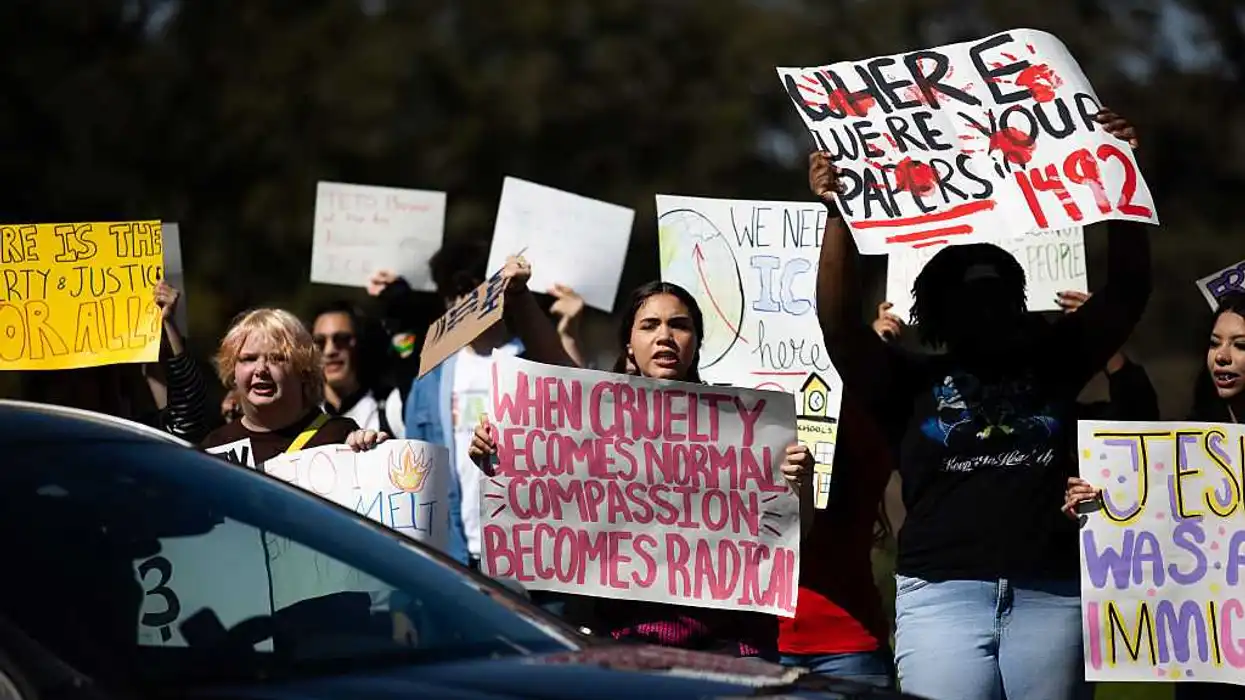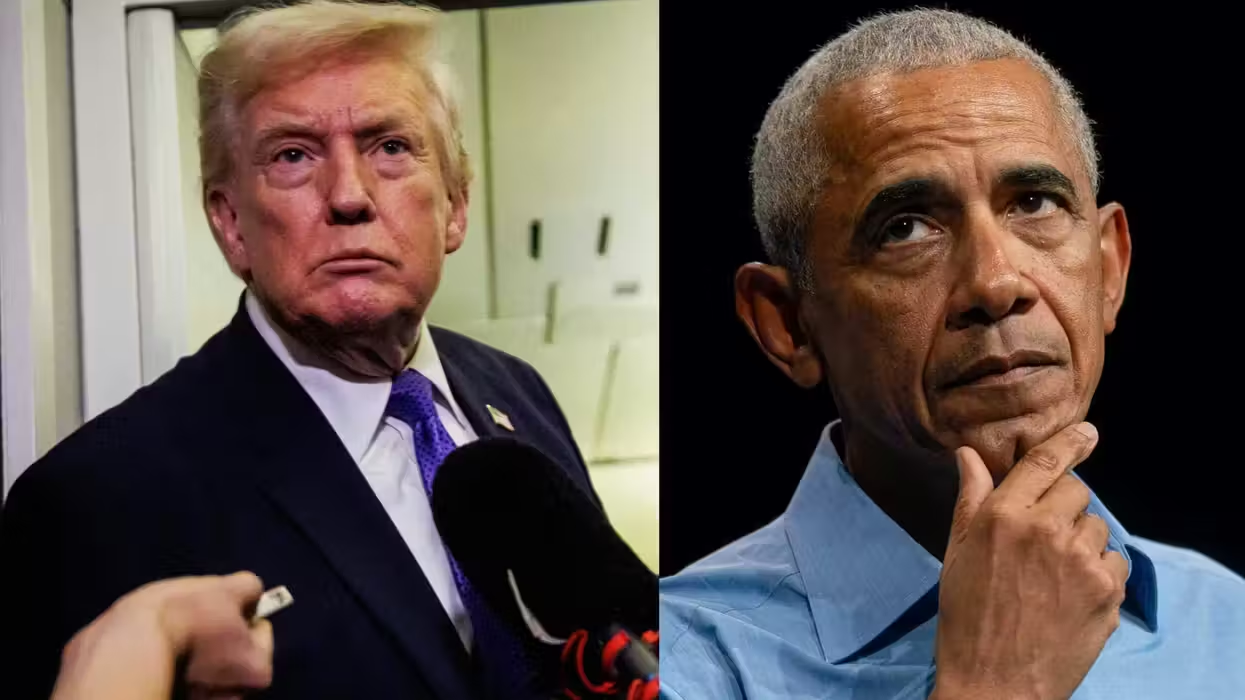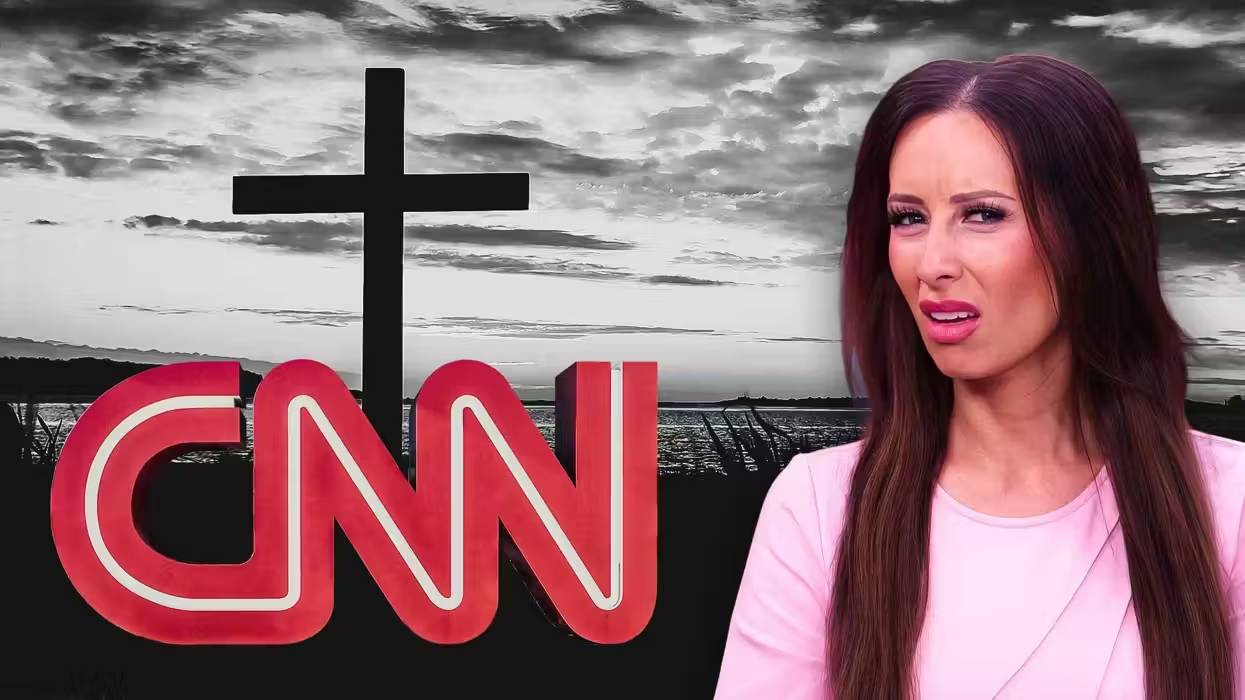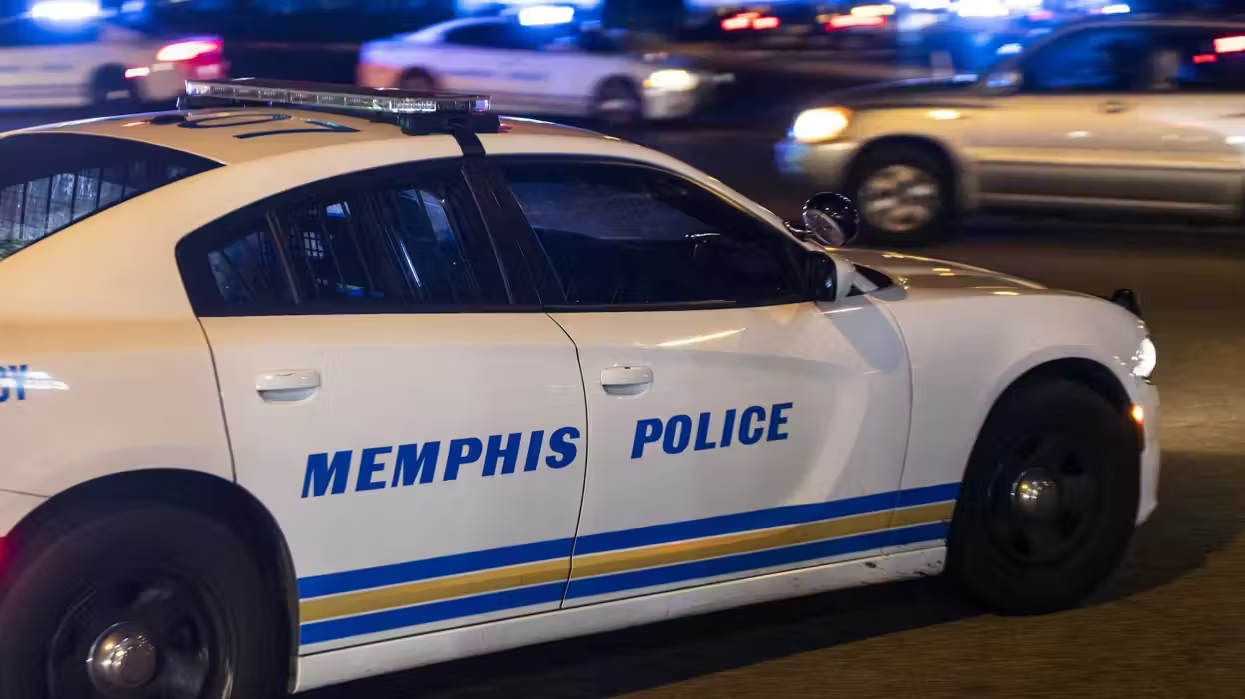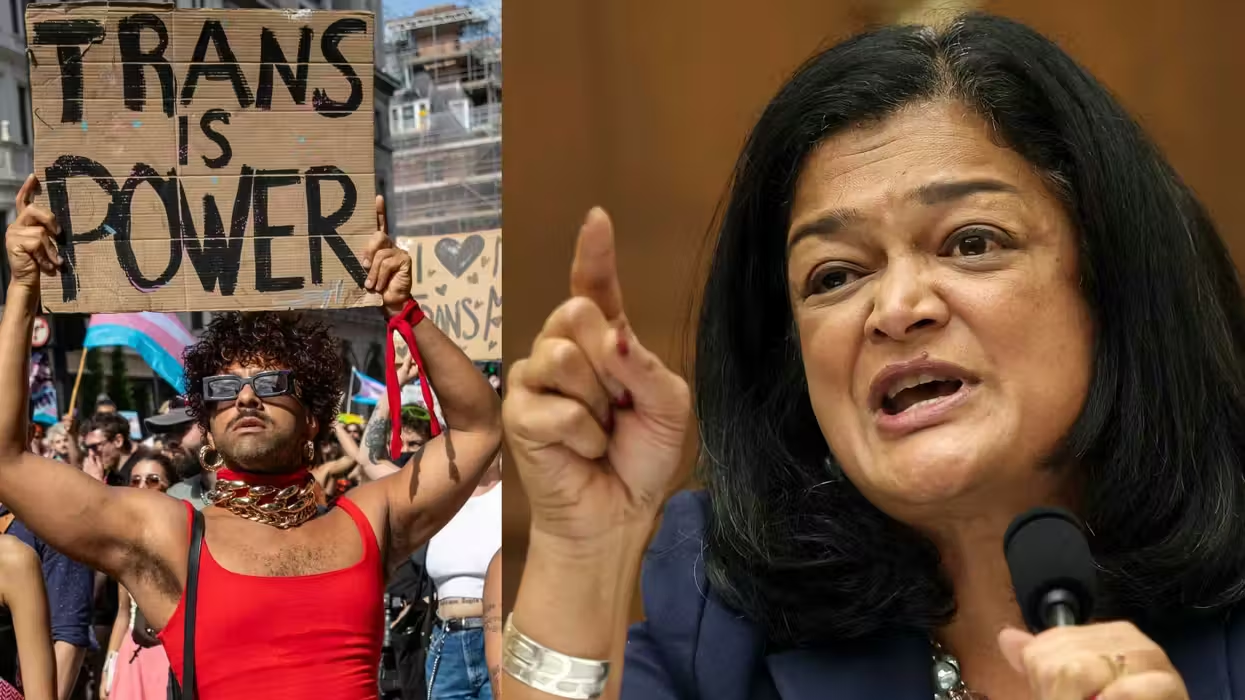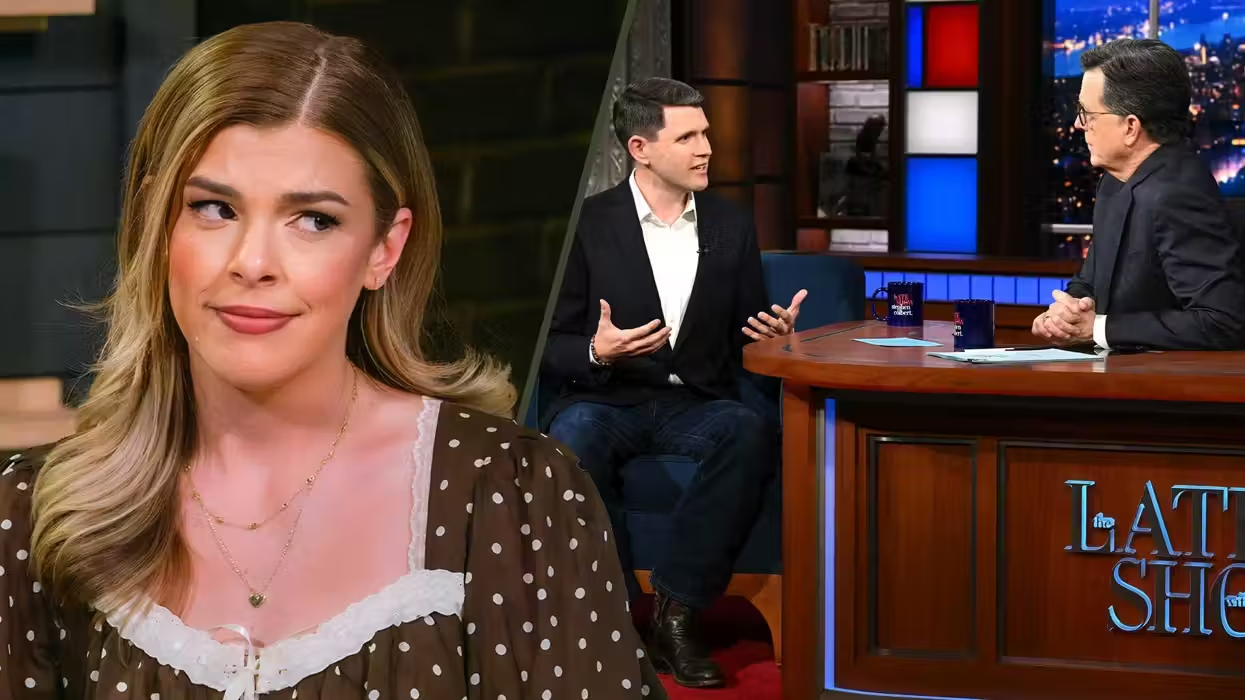
© 2026 Blaze Media LLC. All rights reserved.
"It is the only thing that is left that isn't regulated up the wazoo."
On Wednesday evening, with Wikipedia still under its blackout to protest the House of Representatives' Stop Online Piracy Act (SOPA) and the Senate's Protect Intellectual Property Act (PIPA), Glenn Beck shared with GBTV viewers what the proposed legislation is really all about.
As Beck points out, who wouldn't want to stop piracy or protect property that belongs to someone else? According to Beck, we should of course want to uphold values that prevent online stealing and protects the copyright of others. "But that's not the problem," he says. "The solution is the problem."
Asking Americans to "engage your brain", Beck boils down why the legislation is bad, stating it would make things less efficient and that the vague wording of the bills makes "ease of censorship" by the government "disturbing" and "China-esq". But ultimately, Beck says that any regulation on the Internet should never be allowed because "it's the only thing left that isn't regulated up the wazoo".
Watch the GBTV clip:
Several websites and Internet service providers with similar concerns about the legislation, such a Wikipedia and Google, staged a virtual protest against SOPA and PIPA yesterday. In cased you missed what some of the blackouts looked like, check out this post on the Blaze blog.
Participating sites hoped the blackout would show lawmakers what would happen if the legislation were passed, but was it effective? Let's take a look.
When Wikipedia came back online last night after its 24-hour blackout, it stated more than 162 million users saw the anti-SOPA message on the site. New Scientist reports that at one point during the scheduled Jan. 18 protest, SOPA was the subject of more than 4,500 tweets per minute, and PC World notes that 4.5 million people signed a petition against the legislation.
There was much discussion on both sides among regular citizens. Check out some of the video Gizmodo captured of the heated debate on the streets of New York. Citizens voicing complaints to those in Congress even shut down some of their websites like those of Mark Begich (D - AK), Barbara Boxer (D - CA) and Patrick Leahy (D - VT).
Also, Gizmodo reports in a separate post that 18 senators who once supported PIPA -- seven of whom were co-sponsors -- have changed their stance and now oppose the legislation, which is strongly supported by the entertainment industry (Note: * indicates former co-sponsor):
Roy Blunt (R-MO) *John Boozman (R-AR) *
Scott Brown (R-MA)
Ben Cardin (D-MD) *
John Cornyn (R-TX)
Jim DeMint (R-SC)
Orrin Hatch (R-UT) *
James Inhofe (R-OK)
Mark Kirk (R-IL)
Jeff Merkley (D-OR)
Lisa Murkowski (R-AK)
Marco Rubio (R-FL) *
Olympia Snowe (R-ME)
David Vitter (R-LA)*
Tom Coburn (R-OK)
Pat Toomey (R-PA)
Mike Johanns (R-NE)
Kelly Ayotte (R-NH)*
SOPA was put on hold last week with the house majority leader Rep. Eric Cantor (R-Va.) saying it would not got to a floor vote until there was some consensus and even the bill's author Rep. Lamar Smith (R-Texas) acknowledged more research was needed due to industry concerns, according to InfoWorld. On Wednesday, PC World reports, those in the House opposed to SOPA proposed a new piece of legislation called Online Protection and Enforcement of Digital Trade (OPEN) Act, which was introduced on the Senate side in December.
This alternative, PC World reports, would give copyright holders the ability to making complaints over online violations on foreign websites and the U.S. International Trade Commission would investigate claims:
"OPEN is a targeted, effective solution to the problem of foreign, rogue websites stealing from American artists and innovators," [Rep. Darrell Issa (R-CA)] said in a statement. "Today's Internet blackout has underscored the flawed approach taken by SOPA and PIPA to the real problem of intellectual property infringement. OPEN is a smarter way to protect taxpayers' rights while protecting the Internet."By contrast, SOPA would allow the U.S. Department of Justice and copyright holders to seek court orders requiring payment processors and ad networks to stop doing business with foreign websites accused by the plaintiffs of copyright infringement. SOPA would also allow the DOJ to seek court orders requiring search engines and possibly other websites to stop linking to sites it accuses of infringing copyright.
SOPA would also give Internet service providers, domain name registrars and other online service providers immunity from lawsuits if they voluntarily cut off service to websites accused of infringing.
Still, PC World notes that Rep. Smith doesn't think OPEN would do enough and could actually make the problem worse, calling it a "safe harbor for foreign criminals".
For now, Wikipedia users are thankful the site is back online. Fox News reports some of the following tweets of relief:
"Welcome back, Wikipedia," Ernie Smith wrote, while Holly Fitzpatrick tweeted, "Never knew how much I relied on wikipedia until I procrastinated on my bio essays and had to scour for other links to tell me things...""In 50 years our grandchildren will ask us where we were the day Wikipedia went dark," Andrew Bee said on the microblogging site.
But Wikipedia is telling people that the protest is not over. While it calls the online protest "extraordinary", it states in a thank you letter on its foundation website that SOPA and PIPA are still "waiting in the shadows" and is encouraging users to continue contacting their representatives.
What's next? PC World reports that Rep. Smith plans to continue pushing for SOPA to get passed. As for PIPA, the Senate is expected to vote Jan. 24.
Want to leave a tip?
We answer to you. Help keep our content free of advertisers and big tech censorship by leaving a tip today.
Want to join the conversation?
Already a subscriber?
more stories
Sign up for the Blaze newsletter
By signing up, you agree to our Privacy Policy and Terms of Use, and agree to receive content that may sometimes include advertisements. You may opt out at any time.
Related Content
© 2026 Blaze Media LLC. All rights reserved.
Get the stories that matter most delivered directly to your inbox.
By signing up, you agree to our Privacy Policy and Terms of Use, and agree to receive content that may sometimes include advertisements. You may opt out at any time.


